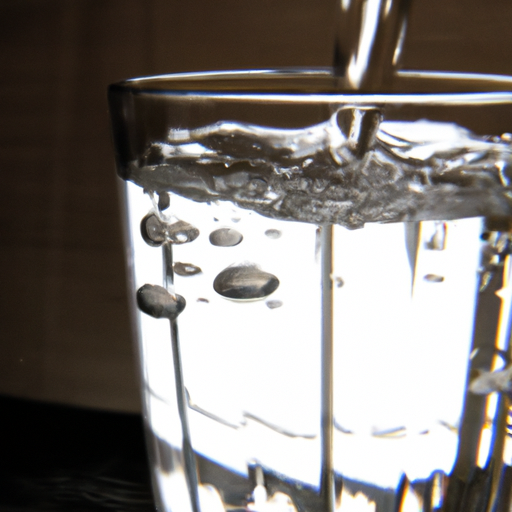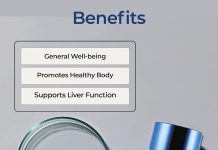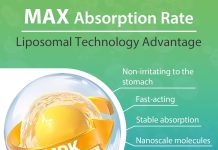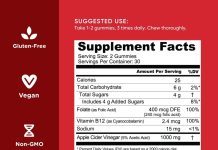When it comes to shedding those stubborn pounds, there is often a focus on healthy eating and exercise. But what about the role hydration plays in weight loss? Many of us don’t realize just how important proper hydration is for our body’s ability to shed those extra pounds. In fact, staying adequately hydrated can have a significant impact on our weight loss journey. So, let’s grab a glass of water and explore the incredible ways hydration can help us reach our weight loss goals.
Review contents
Understanding Hydration
The importance of water in the body
Water is an essential component of our bodies, making up about 60% of our total body weight. It plays a crucial role in various bodily functions, including temperature regulation, lubrication of joints, and transportation of nutrients and waste products. Adequate hydration is vital for maintaining overall health and well-being.
How much water should you drink?
The amount of water an individual needs depends on several factors, such as age, sex, activity level, and overall health. The widely recommended guideline is to drink at least eight 8-ounce glasses of water a day, which equals about 2 liters or half a gallon. However, individual needs may vary, and it’s important to listen to your body’s signals for thirst and adjust your water intake accordingly.
Signs of dehydration
Dehydration occurs when the body loses more water than it takes in. It can have various negative effects on our health, including fatigue, dizziness, dry mouth, and reduced cognitive function. Recognizing the signs of dehydration is crucial to ensure we can take prompt action to rehydrate. Some common signs of dehydration include dark colored urine, infrequent urination, dry skin, and increased thirst.
Hydration and Weight Loss
Water as an appetite suppressant
When it comes to weight loss, water can be a powerful tool. Drinking water before meals can help decrease appetite and promote a feeling of fullness, which can reduce calorie intake. Research suggests that individuals who drink water before meals tend to consume fewer calories than those who don’t. Additionally, choosing water instead of high-calorie beverages like soda or juice can significantly reduce overall calorie intake and aid in weight loss.
Increased metabolism
Maintaining proper hydration can also have a positive impact on our metabolism. Studies have shown that drinking water can temporarily boost metabolism by up to 30%. This increase in metabolic rate can lead to more calories being burned throughout the day, contributing to weight loss efforts. Staying well-hydrated can help optimize our body’s natural calorie-burning abilities.
Effect on calorie intake
Proper hydration can indirectly affect our calorie intake. Sometimes, we may mistake thirst for hunger and end up eating when our body actually needs water. By staying hydrated, we can help prevent unnecessary snacking and overeating. Additionally, replacing high-calorie beverages with water can reduce overall calorie consumption. By consciously choosing water as our primary beverage, we can create a calorie deficit, which is crucial for weight loss.
Hydration and Exercise
Water for optimal workout performance
Proper hydration is essential for optimizing workout performance. During exercise, our bodies lose water through sweat, and it’s crucial to replenish those fluids to avoid dehydration. When we are dehydrated, our physical performance can suffer, leading to decreased endurance, reduced strength, and impaired concentration. By maintaining proper hydration, we can maximize our exercise performance and get the most out of our workouts.
Hydration and fat burning during exercise
Drinking water during exercise can also play a role in fat burning. When we are well-hydrated, our bodies are better able to break down stored fat and use it as a fuel source during physical activity. Inadequate hydration can hinder this process and limit our body’s ability to burn fat effectively. Therefore, ensuring proper hydration before, during, and after exercise is essential for maximizing fat-burning potential.
Recovery and muscle repair
Hydration is crucial for post-workout recovery as well. After intense exercise, our muscles need to repair and rebuild. Proper hydration helps facilitate this process by delivering nutrients to the muscles and removing waste products. Additionally, staying well-hydrated can help reduce post-workout muscle soreness, allowing us to recover faster and get back to our fitness routine more quickly.
Hydration and Digestion
Water’s role in digestion
Water plays a vital role in the digestion of food. It helps break down food particles, aids in the absorption of nutrients, and facilitates the movement of waste through the digestive system. By staying well-hydrated, we can ensure that our digestive system functions properly, allowing for efficient nutrient absorption and waste elimination.
Preventing constipation and promoting regularity
One common digestive issue is constipation, which can be prevented or alleviated by maintaining adequate hydration. Water helps soften stools, making them easier to pass through the intestines. Insufficient water intake can lead to dehydration, which can result in harder stools and difficulty in bowel movements. By drinking enough water, we can promote regularity and prevent constipation.
Water intake and nutrient absorption
Proper hydration is also essential for optimal nutrient absorption. Water helps dissolve nutrients in the digestive system, making them more easily absorbed by the body. Inadequate hydration can hinder the absorption of essential vitamins and minerals, leading to nutrient deficiencies. By prioritizing hydration, we can ensure that our bodies receive the necessary nutrients for overall health and well-being.
Hydration and Detoxification
Water for flushing out toxins
Our bodies naturally accumulate toxins from various sources, such as pollutants, medications, and metabolic waste products. Drinking an adequate amount of water is crucial for flushing out these toxins through urine and sweat. By staying well-hydrated, we can support our body’s natural detoxification processes and promote overall health.
Supporting liver and kidney function
The liver and kidneys are two vital organs involved in detoxification. Both organs require sufficient water intake to function properly and effectively eliminate toxins from the body. Inadequate hydration can put a strain on these organs, compromising their ability to filter waste products and perform their detoxifying functions. By staying hydrated, we can support the health and function of our liver and kidneys.
Hydration and skin health
Proper hydration is essential for maintaining healthy skin. Dehydration can lead to dryness, flakiness, and dullness of the skin. By drinking enough water, we can keep our skin hydrated, plump, and radiant. Water helps to moisturize the skin from within, improving its elasticity and reducing the appearance of fine lines and wrinkles. Hydration is a simple yet effective way to promote healthy, glowing skin.
Hydration Techniques for Weight Loss
Drinking water before meals
A simple and effective technique for weight loss is to drink water before meals. Research has shown that consuming water before a meal can help reduce calorie intake by creating a feeling of fullness. By drinking a glass of water before sitting down to eat, we can curb our appetite and prevent overeating. This technique can be especially beneficial when trying to create a calorie deficit for weight loss.
Choosing water-rich foods
In addition to drinking water, we can also increase our hydration levels by consuming water-rich foods. Fruits and vegetables such as watermelon, cucumbers, and strawberries have high water content and can contribute to our overall hydration. Including these foods in our diet can help us stay hydrated while also providing essential nutrients and contributing to weight loss efforts.
Avoiding dehydrating beverages
Certain beverages can contribute to dehydration, hindering weight loss efforts. Sugary drinks, alcohol, and caffeinated beverages like soda and coffee can have a diuretic effect, causing increased water loss. It’s important to limit or avoid these dehydrating beverages and opt for water instead. By making conscious choices to prioritize water intake over these dehydrating alternatives, we can support our weight loss goals and overall health.
Hydration and Healthy Habits
Hydration and portion control
Proper hydration can also play a role in portion control. Sometimes, thirst can be mistaken for hunger, leading to unnecessary snacking and overeating. By staying well-hydrated, we can prevent confusion between thirst and hunger signals, ensuring that we are adequately nourishing our bodies with the right amount of calories. Being mindful of our hydration levels can help us maintain a healthy balance in our diet.
Replacing sugary drinks with water
A common source of excess calories in our diet comes from sugary drinks like soda, energy drinks, and fruit juices. By replacing these calorie-dense beverages with water, we can significantly reduce our overall calorie intake. Water has zero calories, making it an ideal choice for those looking to cut down on their sugar consumption and manage their weight effectively.
Tracking water intake
To ensure we are staying adequately hydrated, it can be helpful to track our water intake. Numerous mobile apps and water-tracking devices are available to help us keep track of how much water we are consuming throughout the day. By setting reminders and actively monitoring our water intake, we can establish healthy hydration habits and make sure we are meeting our daily water needs.
Challenges and Tips for Staying Hydrated
Overcoming taste preferences
Some individuals may find it challenging to drink plain water due to taste preferences. Thankfully, there are several strategies to make it more enjoyable. Adding a slice of lemon, cucumber, or mint to your water can infuse it with refreshing flavors. Additionally, herbal teas and flavored water options can provide hydration while satisfying taste preferences. Finding the right combination that works for you can help overcome any obstacles to staying adequately hydrated.
Remembering to drink enough water
In our busy lives, it’s easy to forget to drink enough water throughout the day. One helpful technique is to set reminders on our phones or use mobile apps that send notifications to encourage regular hydration. Keeping a water bottle or a glass of water within sight can also serve as a visual reminder to drink throughout the day. By making hydration a conscious habit, we can ensure we are consistently meeting our hydration needs.
Dealing with hydration challenges during travel or busy schedules
Travel and busy schedules can present challenges when it comes to staying adequately hydrated. However, with a little planning, it’s possible to overcome these obstacles. Packing a refillable water bottle is essential when traveling to ensure access to hydration. Planning ahead by identifying water sources at your destination and scheduling regular water breaks during busy schedules can help prioritize hydration. Additionally, choosing water-rich foods and avoiding dehydrating beverages can also aid in maintaining hydration levels during these challenging times.
Effects of Dehydration on Weight Loss
Slowed metabolism
Dehydration can have a negative impact on our metabolism. When we are dehydrated, our bodies may experience a decrease in metabolic rate, making it more challenging to lose weight. A slowed metabolism can result in fewer calories being burned at rest, which can hinder weight loss efforts. By staying adequately hydrated, we can support a healthy metabolism and maximize our body’s calorie-burning potential.
Decreased energy levels
Lack of proper hydration can lead to decreased energy levels, which can impact our motivation to engage in physical activity and exercise. When we are dehydrated, our bodies work harder to carry out everyday tasks, leaving us feeling fatigued and sluggish. Low energy levels can make it more difficult to stay active and maintain a consistent exercise routine, which is crucial for weight loss. By prioritizing hydration, we can ensure optimal energy levels for our weight loss journey.
Impaired fat burning
Dehydration can impair our body’s ability to burn fat efficiently. When our bodies lack adequate hydration, the process of breaking down stored fat and using it as energy becomes less effective. This can result in a reduced ability to burn fat, making weight loss more challenging. By maintaining proper hydration, we can support our body’s fat-burning mechanisms and enhance our weight loss efforts.
Conclusion
Hydration plays a vital role in weight loss, and its importance should not be underestimated. From appetite control and metabolism optimization to exercise performance and digestion, water is a key ingredient in achieving our weight loss goals. By prioritizing hydration and implementing strategies such as drinking water before meals, choosing water-rich foods, and tracking our water intake, we can support our overall health and wellness while effectively shedding those extra pounds. Remember, staying hydrated is not only beneficial for weight loss but also essential for our general well-being. Cheers to a healthier and more hydrated you!



























